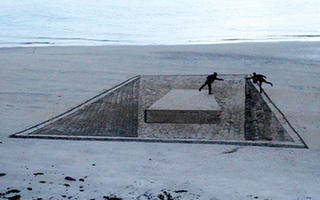
Before you write something, remember there's a human being behind that screen
收听与下载
The script of this programme 本节目台词
Rob: Hello and welcome to Authentic Real English with me Rob…
Feifei: …and me Feifei. 欢迎大家收听有BBC英语教学制作的《地道英语》节目。
Rob: In this programme, we're talking about an expression that's appeared in this age of the internet. And it's connected to social media. So Feifei do you communicate with other people a lot on social media?
Feifei: Yes, I do. 我和我的朋友们会通过社交网站保持联络,不过陌生人也会在这个摸不着的虚拟空间里交流互动。可是有那么些人特别 mean 尖酸刻薄,写下攻击性的留言毫无理由的故意伤害他人。这种行为真让人讨厌!
Rob: We call this cyberbullying. That's a form of bullying in which people harass and harm other people online deliberately. And unlike the traditional bully, the electronic bully can remain anonymous. So we don't know who they are.
Feifei: Cyberbullying 网络欺凌。这个概念指的是人们通过互联网对个人或群体的恶意、重复伤害行为。随着社交网站的盛行,一些人故意通过网络散播关于他人的谣言、谎言。
Rob: Yes. It's becoming very common among teenagers these days. There are campaigns against cyberbullying and some places have adopted laws to prevent it. Let's hear examples of how this expression is used.
Examples
- Kate is a victim of cyberbullying. It's so bad she doesn't want to leave the house. Someone from school has put messages on social media saying she's ugly and she should die. It's terrible!
- Experts say people should protect themselves from cyberbullying by not taking everything to heart.
Feifei: Well, this last example includes some good advice.
Rob: Indeed. Experts advise you not to give out your own or friends' personal information and know how to block or report people who behave in an improper way.
Feifei: 在这里,我们还是要提醒大家在互联网上和他人交流要慎重。And when you send messages to people, be careful about what you write and post online. And don't share an unkind personal comment or image. Remember that though you think you have just a computer in front of you, on the other side of the screen there is a real human being.
Rob: So be safe and happy online. And enjoy social media.
Both: Bye!






















